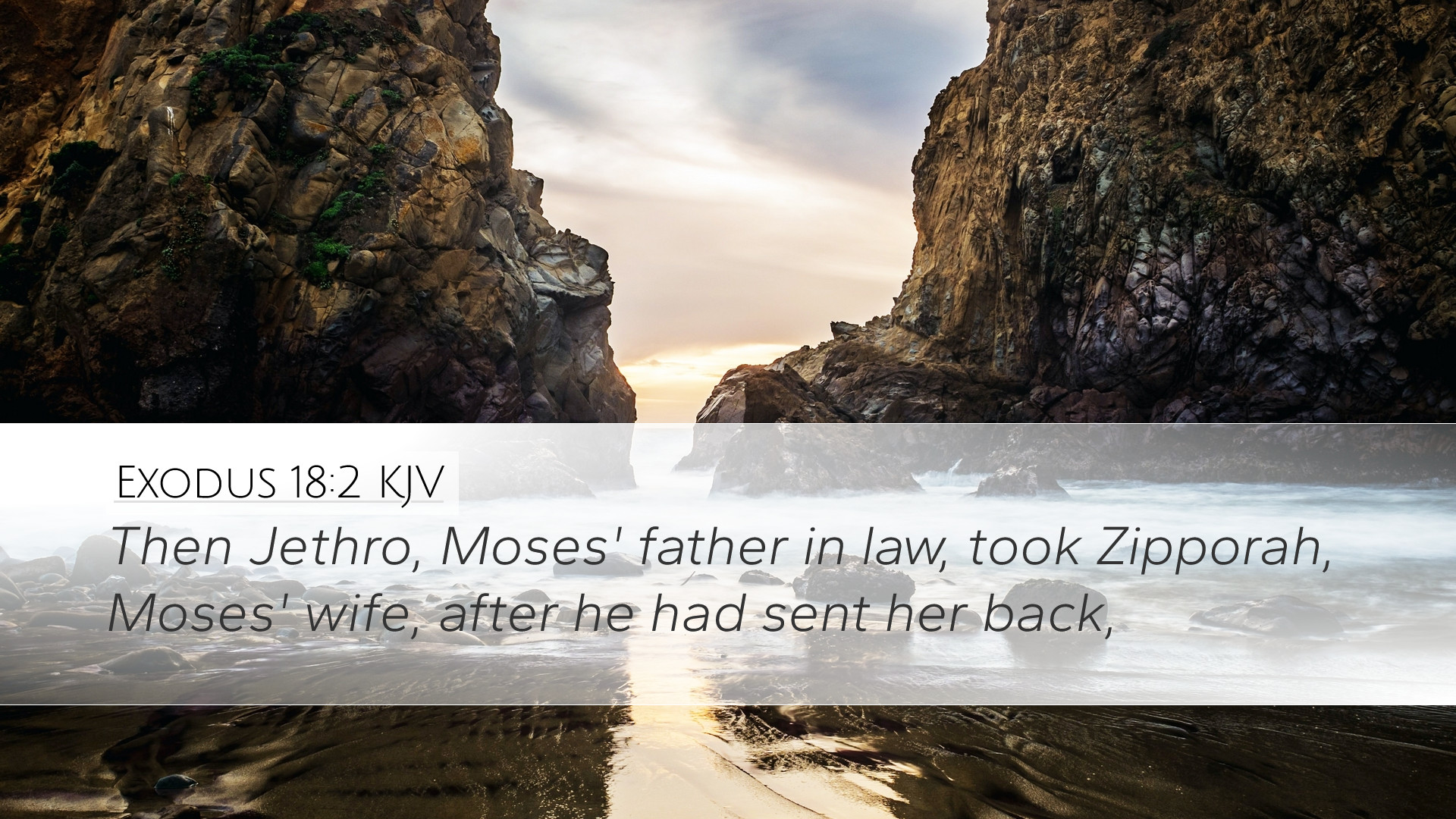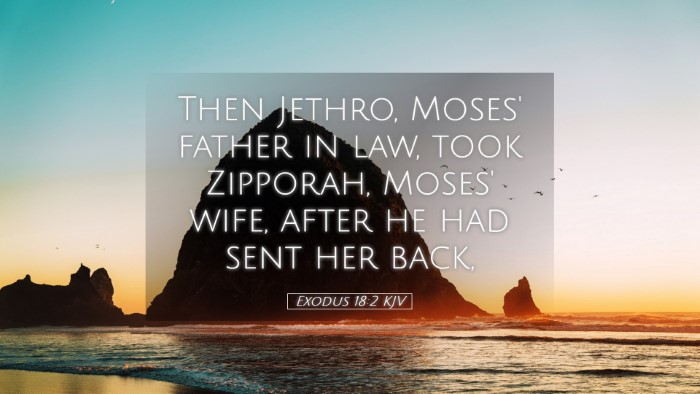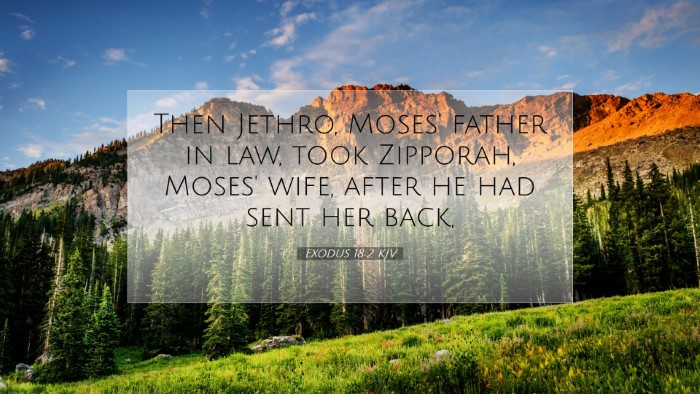Exodus 18:2 - Commentary
Text of Exodus 18:2: "Then Jethro, the priest of Midian, Moses' father-in-law, took Zipporah, Moses' wife, after he had sent her back."
Contextual Background
In this passage, we witness a significant moment in Moses' life as he is reunited with his family after the exodus from Egypt. Jethro, described as the priest of Midian, plays a crucial role as both a father-in-law and a wise advisor. This verse not only highlights the importance of familial relationships in the biblical narrative but also opens up discussions regarding leadership and the implications of governance among the people of Israel.
Insights from Matthew Henry
Jethro's Role: Matthew Henry emphasizes Jethro’s status as a priest, suggesting that his lineage and spiritual background equipped him with wisdom and understanding. Jethro’s actions indicate that he is not only concerned about Moses’ personal welfare but also about the broader implications for the community of Israel.
Family and Leadership: Henry notes the significance of Moses sending Zipporah back to Midian during the Exodus. This decision illustrates the challenges faced by leaders, often having to prioritize communal responsibilities over family. It creates a tension between personal and communal obligations, a theme relevant to those in pastoral leadership and governance.
Albert Barnes' Perspective
Historical Context: Albert Barnes contextualizes the verse by explaining the historical background of Moses' family. He suggests that this moment represents a reunion not just of family members but of wisdom based on experiences. Jethro's return with Zipporah signals an alignment of Moses’ responsibilities as a leader with his duties as a husband.
Leadership Advice: Barnes focuses on the subsequent advice Jethro imparts to Moses regarding leadership structures. He underscores the importance of delegation and wise counsel, themes that emerge prominently in the latter part of Exodus 18. This practical wisdom is invaluable for pastoral leaders who often face the burdens of ministry.
Adam Clarke's Analysis
Interpretation of ‘Sent Her Back’: Adam Clarke provides a nuanced interpretation of Moses sending Zipporah back. He posits that the act of sending her away was likely a result of the intense dangers they faced during the Exodus. Clarke's analysis leads to a deeper reflection on the sacrifices made for the greater good, highlighting the cost involved in following God's call.
Familial bonds: Clarke further remarks on the importance of family support in ministry. He explains that despite the physical separation, the strength of familial ties is crucial for fulfilling one’s God-given mission. This serves as a reminder of the balance needed between ministry and family life for those in leadership roles.
Theological Reflections
This passage invites deeper theological reflection on community, leadership, and familial obligations. Here are key themes:
- Leadership Challenges: The struggle between personal and community responsibilities faced by leaders.
- Cultural Context: Understanding the Midianite culture surrounding Jethro can lead to greater appreciation for the multi-faceted relationships in the biblical narrative.
- Divine Guidance: The necessity of wise counsel in decision-making, reflecting the truth that God often speaks through mentors.
Applicational Insights
For pastors and theologians, there are practical applications stemming from Exodus 18:2:
- Balancing Roles: The need to balance ministry and family life highlights the importance of supporting congregants in their own family commitments.
- Mentorship: The relationship between Moses and Jethro serves as a model for mentoring relationships in church settings.
- Delegation of Authority: The structure of leadership illustrated in later verses encourages effective delegation within church ministries to prevent burnout.
Conclusion
Exodus 18:2 encapsulates a pivotal moment in Moses’ journey, framed by the complexities of leadership and familial obligations. The insights drawn from the commentaries of Matthew Henry, Albert Barnes, and Adam Clarke provide a layered understanding that enriches the text’s meaning for those studying Scripture. The application of these principles resonates deeply with today's pastoral theologians, emphasizing the significance of family, wise counsel, and the delicate balancing act of leadership in our walk with God.


